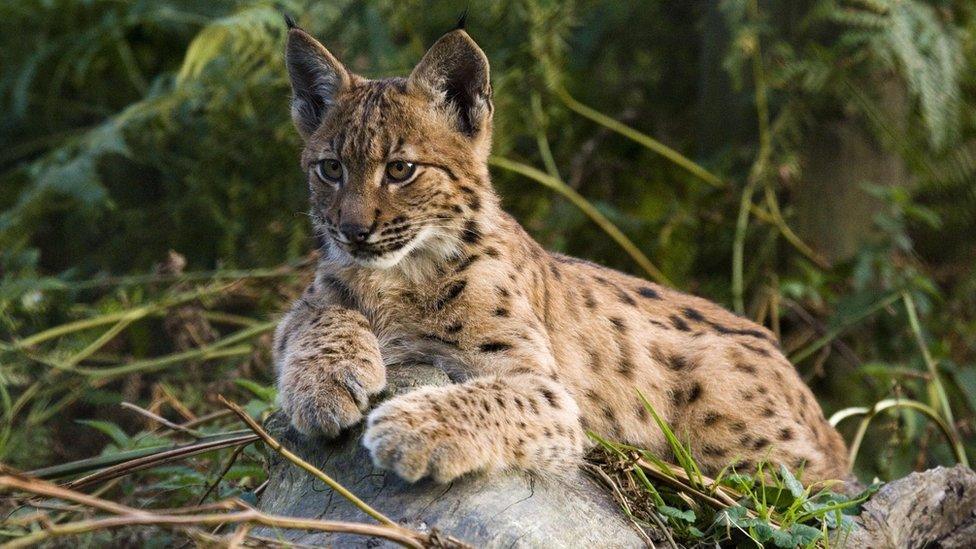Lynx could thrive in Northumberland, study finds
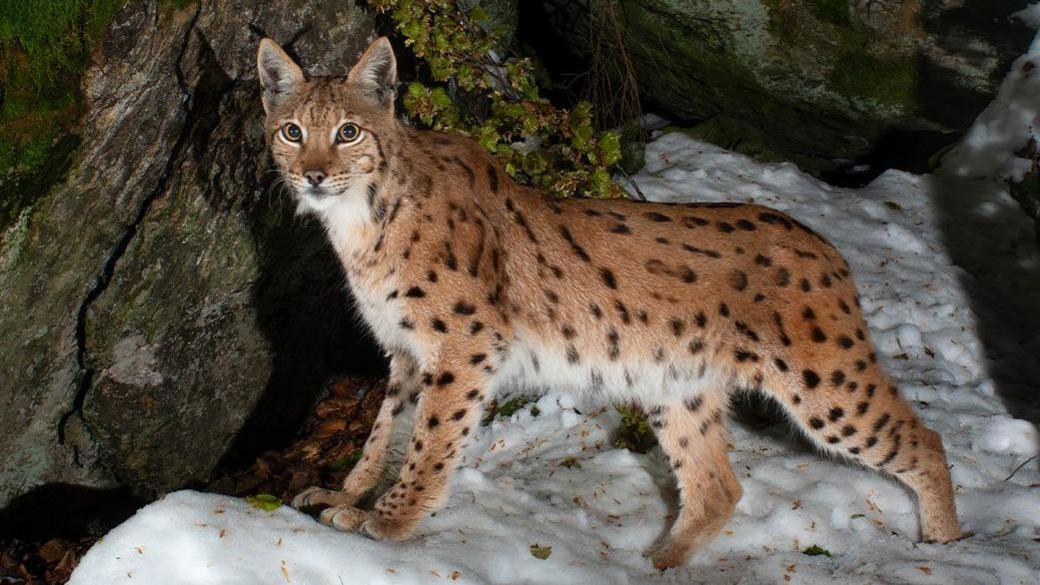
A consultation into the reintroduction of lynx in Northumberland has taken place
- Published
Lynx could thrive if released in Northumberland, research has found.
A year-long social consultation by the Missing Lynx Project found that Northumberland is the only area in England and Wales that has enough woodland to support them and 72% of people in the region support their reintroduction.
One of only two native cat species in Britain along with the wild cat, lynx vanished 800 years ago due to hunting and loss of their woodland habitat.
Now, the team is working with locals to discuss how a potential reintroduction could be managed.
While other lost or rare species such as beavers and pine martens are now staging comebacks in Britain, there are concerns about the presence of large predators, such as lynx and wolves, in a highly populated island and their risk to livestock.
About 20 animals released over several years into the Kielder forest area could grow over time into a healthy population of about 50 in north-west Northumberland and bordering areas of Cumbria and southern Scotland, the peer-reviewed paper found.
More than 1,000 people across Northumberland filled out questionnaires on the potential reintroduction and the consultation also included an exhibition touring the region and stakeholder meetings.
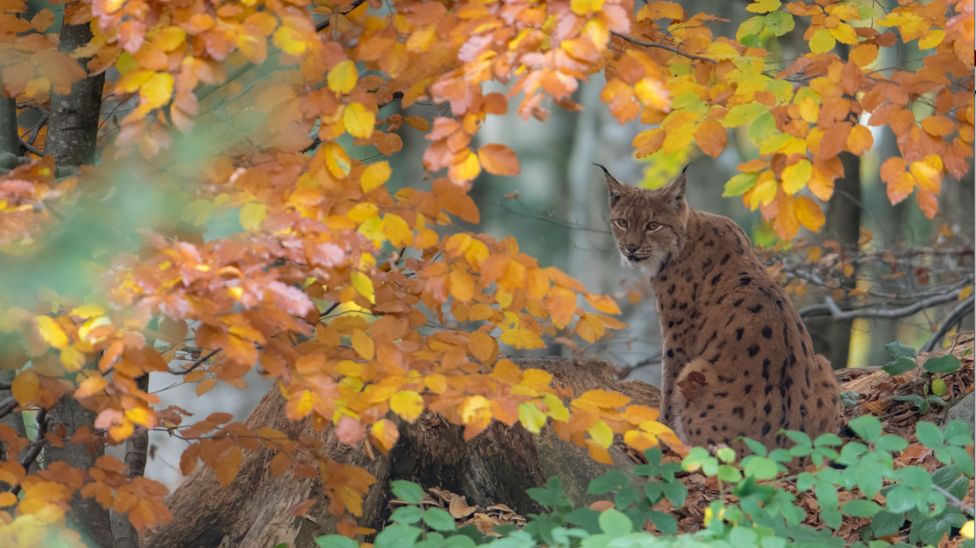
Lynx have been successfully reintroduced to a number of other European countries
The Lifescape Project charity is leading the Missing Lynx Project, in partnership with Northumberland Wildlife Trust and The Wildlife Trusts
One of the key concerns with lynx is the likelihood of them taking sheep in fields near woodland.
Measures that could be used - as they have in Europe - to reduce the risk to livestock include electric fencing, guard dogs, compensation payments and people on the ground to respond to issues.
Andrea Calvesbert, from the National Sheep Association (NSA), said she remained concerned the project did "not fully grasp the real-world implications this would have on farm businesses, livelihoods and the mental health of farmers".
"Financial compensation for livestock losses, while well-intentioned, cannot replace the distress caused by the fear of predation," she said.
Ms Calvesbert added guard dogs and enhanced fencing are "not practical" because of the "public's legal right of access to much of our land".
The NSA has urged the project to "maintain and deepen its engagement with the farming community".
Dr Deborah Brady, lead ecologist for the Lifescape Project, said it expected the risk to livestock to be "reasonably low".
"Even if it is low, everything matters, for every sheep taken there is an impact on that individual farmer, both an emotional impact and a financial impact.
"We need to work really closely and carefully with farmers to think about how we best approach it."
Dr Brady said the cats posed no danger to people and there had been "no recorded fatality from lynx ever".
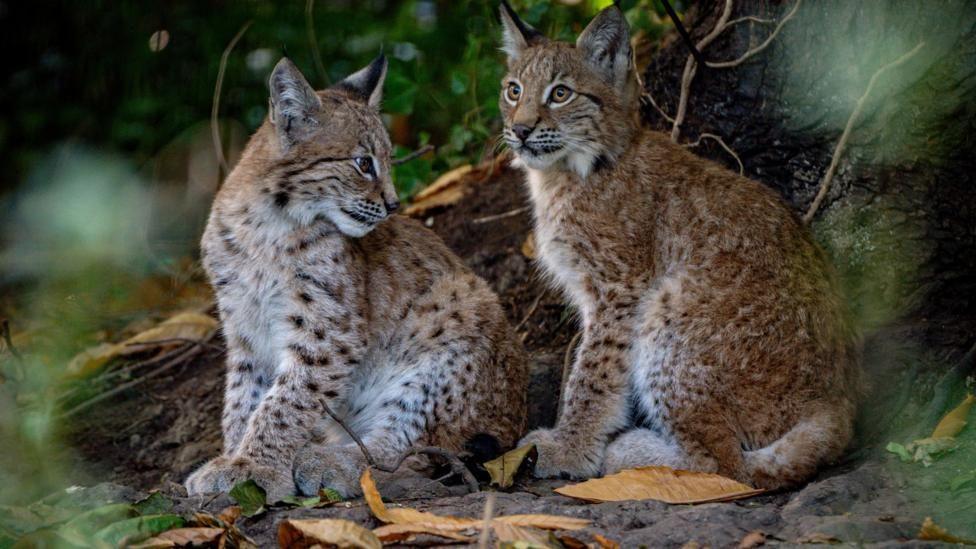
Lynx vanished in Britain 800 years ago due to hunting and loss of their woodland habitat
The project took a group of local farmers to Europe to visit two lynx projects where livestock farmers live alongside the cats.
Laura Harrison, a sheep farmer from Hadrian's Wall, went on the trip and said she was previously "quite ignorant" about lynx but had learned how it was possible to live alongside them.
Mike Pratt, chief executive of Northumberland Wildlife Trust, said it was right to consider bringing back the species and the lynx could provide benefits including controlling deer, managing woodland ecosystems better and providing ecotourism opportunities.
"The power of it is having this creature that should always have been there in these forests of the borders, where it's almost a symbol of the wildness of that area," Mr Pratt said.
While the project would consider applying for a reintroduction licence "down the line", following the positive response to the initial consultation, the focus now was on working up a plan with local people that is deliverable, he said.
Follow BBC North East on X, external, Facebook, external, Nextdoor and Instagram, external.
Get in touch
Do you have a story suggestion for BBC Tyne?
Related topics
- Published31 March 2024
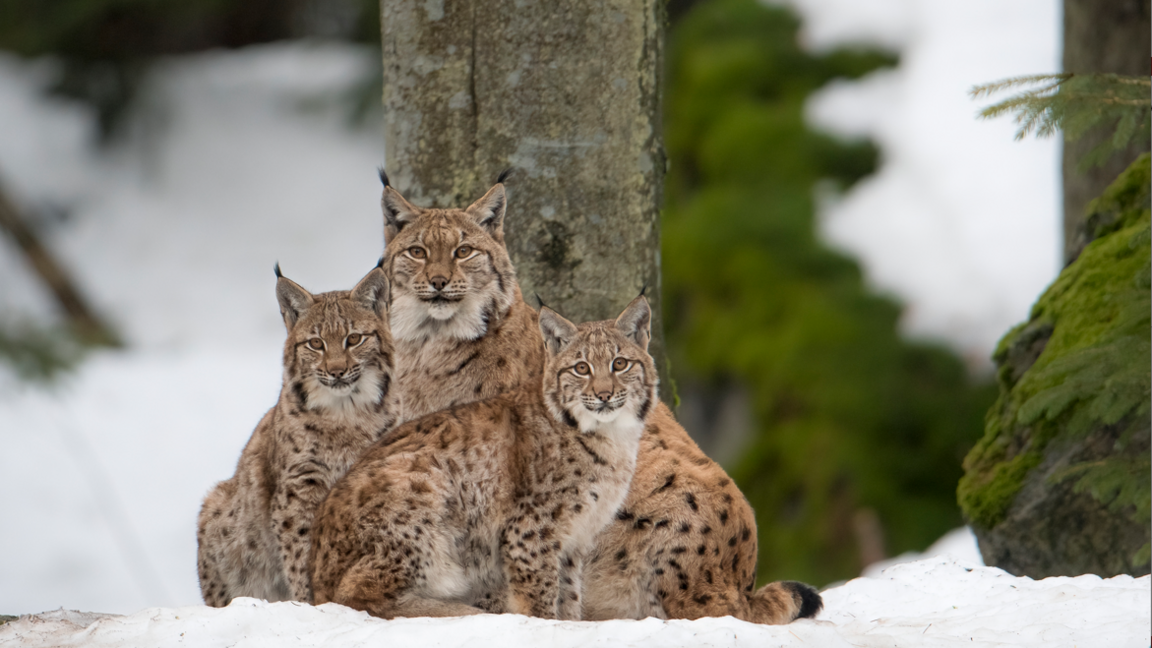
- Published21 March 2022
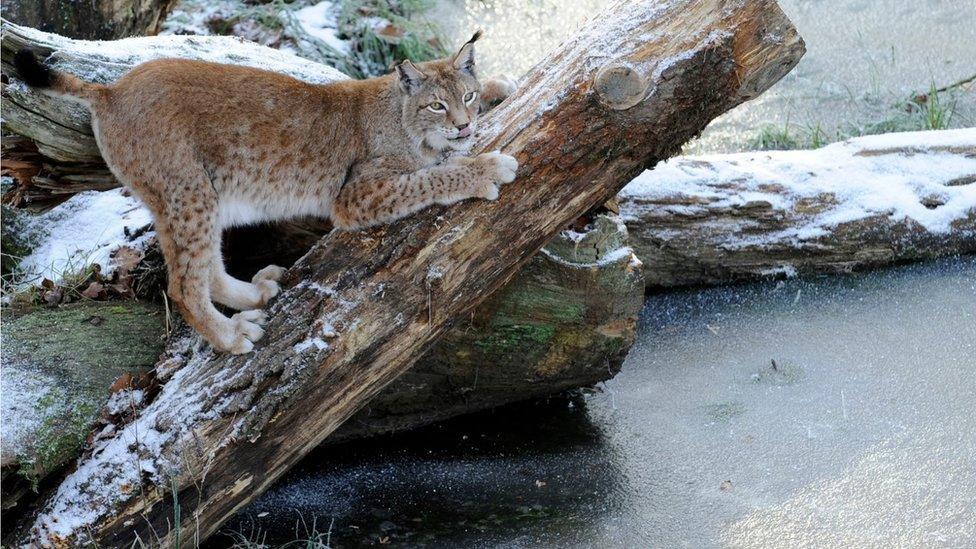
- Published9 February 2021
